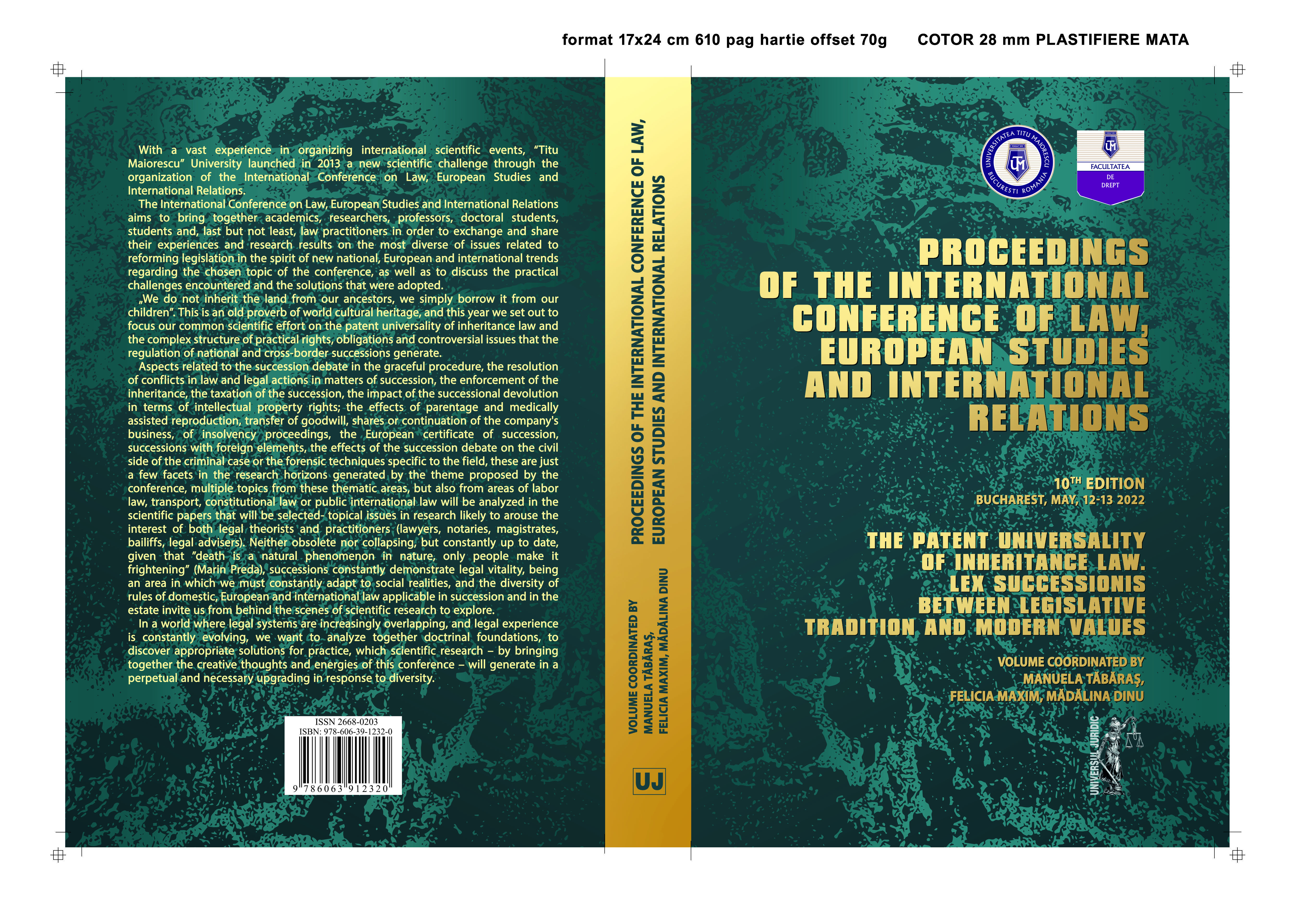TESTAMENTARY INHERITANCE, A LEGATEE'S RISK?
TESTAMENTARY INHERITANCE, A LEGATEE'S RISK?
Author(s): Daniel Cătălin ChiforSubject(s): Law, Constitution, Jurisprudence, Civil Law
Published by: Universul Juridic
Keywords: will; testamentary legacy, heir; property right; risk;
Summary/Abstract: Since ancient times, the right to dispose of rights, property and obligations after the death of a natural person has been a subject of interest for people. This Herculanean concept was debated in Ancient Egypt, in Israel at the time of Moses, in Sparta and in Athens, where the notion of will was introduced in the time of Solon. The community's conception of the devolution of inheritance has undergone a phenomenon of reverse polarisation, in that in ancient Rome it was considered a dishonour to die without leaving a will, the testator being compared to a king who renounces, whereas today the rule is the manifestation of legal inheritance, the community often considering the will as an act of ex inheritance. Inheritance is now regulated at constitutional level and is being brought up to date with social conditions through the adoption of the Civil Code, in which important sections are devoted to legislation on the conditions for the validity and effectiveness of wills. It is important to note that a will is a legal act whose effectiveness depends both on an uncertain term, the death of the testator, and on an implicit condition, that it not be revoked, so that until the testator's actual death the risk of benefiting from the effectiveness of the will falls exclusively on the legatee who is subject to the uncertainty of testamentary revocation.
Journal: Conferința Internațională de Drept, Studii Europene și Relații Internaționale
- Issue Year: XII/2023
- Issue No: XII
- Page Range: 177-182
- Page Count: 6
- Language: English

